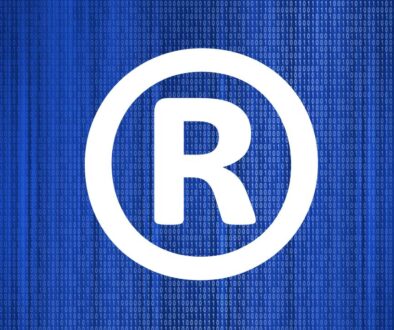Star Trek v. Axanar: Copyright Infringement or Permissible Fan Work?

If you are a Star Trek fan, know a Star Trek fan, or are merely vaguely aware that you need to be very careful about whether you call Star Trek fans “trekkies” or “trekkers,” you are probably aware of the Axanar project and the litigation surrounding it.
For those who spend slightly less of their time contemplating the wonders that Gene Roddenberry created than I do, here is the nickel summary: In 1966, the television show Star Trek first aired. It was cancelled after three seasons but went on to gain popularity in syndication. From these humble beginnings, the property has ultimately expanded into multiple spinoff television series, movies, books, websites, merchandising, and pretty well any kind of copyrightable work you can think of. In terms of the depth and breadth of the copyrighted properties and the fictional geography, it can only properly be called a “universe.” Today, there are two companies that own the copyright rights to Star Trek, CBS and Paramount. CBS owns the television rights and Paramount owns the movie rights, though according to Axanar Productions’ attorneys, this may not be the full picture due to the ways in which the copyright ownership has changed hands over time. CBS and Paramount have, according to numerous news articles, allowed fans to make short films, written fictional works, elaborate and accurate costumes, and other tributes, all without pursuing legal action against the fans. Corroborating this claim is the fact that Paramount lists Star Trek fan sites on its official website for the Star Trek movies. CBS and Paramount could have taken legal action against these fan uses at any time because these fan works are derivative works, meaning copyrightable works that are based on another copyrighted work. Only the owner of a copyright has the right to create or authorize creation of derivative works of the original copyrighted material; if anyone else creates a derivative work, that constitutes copyright infringement.
But Axanar, unlike many fan films before it, has drawn legal action from CBS and Paramount. Theories on why Axanar is different range from timing (CBS has just announced another new Star Trek television show to begin airing in 2017, and Paramount has the next reboot movie coming out in summer 2016) to money (the crowdfunded Axanar raised an unprecedented $1 million for production online) to quality (Axanar is using professionals to make the film, while most prior fan films did not) to sour grapes (the studios fear that Axanar will be more popular than the reboot movies, which many fans felt failed to capture the spirit of Star Trek). The Axanar Productions legal team has taken the strategy of insisting that the plaintiff explain in great detail exactly which copyrights have been violated and exactly which plaintiff owns which copyrights. They are asking, essentially, that CBS and Paramount give the exact coordinates of the conflict within the Star Trek universe. The disconnect is that CBS and Paramount are contending that Axanar Productions is in essence violating (almost) the entire universe all at once. And such insistence on a detailed list of the exact elements that have been violated (which the amended complaint does provide) gives the appearance of being the refuge of an infringer that knows it has been caught and has no solid grounds for defense.
One concept I have seen repeatedly throughout news articles and fan website discussions is that CBS and Paramount have always been fine with fan works as long as they didn’t make any money–and that a lack of profits is a defense to infringement. The Axanar creators themselves have repeated this idea and are fighting hard in the court of public opinion to turn the fan community to their side. Both Prelude to Axanar, a 20-minute trailer to the new movie, and Axanar itself will be released to the public for free (assuming the movie ever does get released). This does not, however, mean that the movie is not a for-profit enterprise in any sense that would matter for a legal defense of Axanar. The professional production staff, producers, and others are certainly being paid, regardless of whether the money comes from donations to a Kickstarter campaign or from purchase of tickets, electronic files, or DVDs. This is also not a real legal test for whether a work is infringing. It is part of the legal test for the fair use defense to infringement, but it is only part of the test. Axanar likely wouldn’t make it past the first question in a fair use analysis, specifically whether the purpose of the use is “criticism, comment, news reporting, teaching (including multiple copies for classroom use), scholarship, or research.” Even if it did, there is a serious question about whether it would harm the market for the copyrighted works, another of the elements of the fair use test. The fact that fans have posited that Axanar better captures the spirit of the original Star Trek than the reboot movies certainly adds weight to CBS and Paramount’s position on that question.
Another defense of Axanar Productions that I have seen often is that CBS and Paramount have never sued before, so they should be barred from suing now. Legally speaking, this would be a defense for Axanar Productions in a trademark case, but it is not a defense in a copyright case like the one CBS and Paramount have filed. Trademark owners must police their trademarks to ensure that the marks do not become so diluted that they no longer serve as source identifiers; copyright owners have no such obligation and are perfectly free to pick and choose which infringers to take action against. This means that the fan theory that the money is the motivation may be at least a partial explanation: why bother pursuing an infringer who has no money? Hiring big-name litigation lawyers is quite expensive, and if you win an infringement case, the other side must pay your attorneys’ fees. If the other side has no money, you’re out your attorneys’ fees.
The other major defense of Axanar Productions I have seen is that CBS and Paramount have slapped fans in the face by bringing this lawsuit. The fan community is the lifeblood of Star Trek, the thinking goes, and for CBS and Paramount to bring a suit without so much as sending a cease and desist letter will only alienate fans. While I do understand this sentiment, and I enjoyed Prelude to Axanar as much as the next fan, I also appreciate that CBS and Paramount are businesses. They have a bottom line to consider, and when fans are saying things like “this captures the spirit of Star Trek better than the reboot movies!” that shows that Axanar is realistically a threat to their bottom line. Should they have explored a license agreement first? Maybe. But they also don’t want to encourage the “it’s better to beg forgiveness than to ask permission” approach from fan works. In addition, Axanar Productions is able to do things that older fan works have not: technology has been changing in ways that make fan works a realistic threat to the market for canon/copyright-owner-created works. CBS and Paramount may be navigating the changing landscape badly, but they are hardly alone in needing to find ways to deal with the changes.
What do you think? Are there other alternatives CBS and Paramount should have explored? Can fan films coexist with canon works without hurting the market for canon works? Will you stop watching new Star Trek because of the lawsuit?


March 17, 2016 @ 11:31 am
If CBS/Paramount were smart, they would grant license to the fan productions and take the very best of them and put them on their new streaming service. Axanar being among the most polished, there is the recently release Star Trek:Horizon set in the ‘Enterprise’ time period. That didn’t get sued. Star Trek Continues and Star Trek New Voyages, both very good original series, for lack of a better term ‘love letters’ to a beloved franchise that didn’t get sued.
Paramount/CBS is being selective in their copyright enforcement and after establishing a very forgiving attitude towards fan productions, almost embracing lack of copyright enforcement as long as there were no profits made, this flies in the face of tacit approval.
If paramount/CBS was smart, appreciated their customer base (The Star Trek Fans), they would put out a fan productions license that stipulated the restrictions (such as cannot make a profit, cannot be shown in a theatre etc), and also include a clause that Paramount/CBS gives the fan productions these rights with the caveat that paramount/CBS by way of this license reserves the right to air any and all such productions as they deem of sufficient quality. Paramount/CBS airs these productions, perhaps even with commercials in them as a small revenue stream generator to be shared with the productions paramount deems worthy of airing. CBS/Paramount would likely keep most of such revenue but what active fan production can’t use the occasional infusion of 5,000 or 10,000 dollars? If CBS/Paramount wanted to get distribution rights to sell DVD’s included in such a licenses so that the actors and crew got some compensation or recognition in things like the IMDB, that would also generate good will between the parties.
To be antagonistic to your fan base is shortsighted and is the work of men in lofty towered that do not understand that without the fan base, they would have no product to stream to anyone because Star Trek would have died in 1968 and be no more than a footnote in television history. No third season would have been produced, no films, no Next Generation, Deep Space Nine, Voyager, Enterprise nor series to be named later for 2017.
This would be seen as positive by the fans in that they get to see this content that is probably inaccessible for some people in any other way, be seen as embracing and nurturing the passion the fan base has shown over the last 50 years (without which you would have no property of sufficient value to sue over in the first place), and be seen as welcoming to audiences old and new. That kind of good will cannot be purchased. It cannot be litigated into existence. Paramount/CBS needs to have the good will of the fan base to make their new show succeed, as well as have their film franchises succeed. What better way to generate that good will, than by executing such a license agreement with the fan productions.
March 18, 2016 @ 2:25 pm
James, a licensing route would be a great idea for the companies, although I suspect CBS and Paramount would have some trouble with administering it the way you’ve described. For one thing, since they each own a different aspect of the work, they would both have to agree about exactly what the terms of the license would be. They are different companies with different priorities, both financial and legal. It’s entirely possible that part of the reason no one has been sued before is that they never agreed about who to sue before. For another thing, they would also need to have figured out exactly where their lines are. How big a budget is too big? Who can make money on a fan production? I suspect that Axanar has clarified a number of things for both companies.
I do agree, though, that it really is too bad that they didn’t have the foresight to formalize their policies into a fan license before Axanar started production. I would love to see a formal fan work license come out of this in the end. I think it would help everyone involved.
March 17, 2016 @ 2:41 pm
The Axanar folks have no leg to stand on. Their case is based on the same logic of a burglar who claims they should be able to rob a house without punishment because it wasn’t “locked enough”.
It doesn’t matter if that burglar had been previously invited into the house.
It doesn’t matter if the house owner had loaned the burglar (or other burglars) items from the house in the past.
The house and its contents belong to the house owner. Not the burglar. no matter how much the burglar admires or desires the things he’s stolen. No matter how little the house owner cares for or appreciates the house’s contents.
And the pressing of charges (or not) against the burglar is completely up to the house owner.
March 18, 2016 @ 2:33 pm
That is a pretty good analogy.
March 17, 2016 @ 3:50 pm
I am an Axanar donor, who started questioning the budget bloat/scope creep of the production when, after raising 640K said they needed another 1.3 Million.
I appreciate and have donated to a number of fan films, and generally enjoy even the “Garage Trek” ones, as a labor of love of a passionate fanbase.
CBS and Paramount have been gracious enough to look the other way, as fan films became better and better, but, these people have crossed some serious lines. They allowed a coffee maker to create, distribute and sell a line of coffee items based on the Axanar Brand, which itself is an unlicensed derivative work of CBS IP. The fact that someone actually thought they had the authority to do such a thing, not only shows contempt for CBS, but also every other fan film, who tries very hard to ensure that they do things in a way that gives the fans good stories, while paying difference to the owners of this storied franchise.
It’s a shame that the actions of a few, could ruin fan films for all of us, as I am sure studios are watching this case very carefully.
March 18, 2016 @ 2:27 pm
Jason, I hadn’t heard of the licensing. Do you have a link or more information about that? That certainly adds an interesting new twist to the story.
I agree, studios very likely are watching this very closely.
March 18, 2016 @ 7:46 pm
My wiki, AxaMonitor, documents the evolving copyright infringement case against Axanar Productions. One of our articles details the extent of Axanar merchandise, including the coffee:
http://axamonitor.com/doku.php?id=merchandise
March 18, 2016 @ 3:26 am
Even the IRS made a STAR TREK movie. It can be seen on YouTube.
March 18, 2016 @ 2:31 pm
I had to see it to believe it. Amazing.